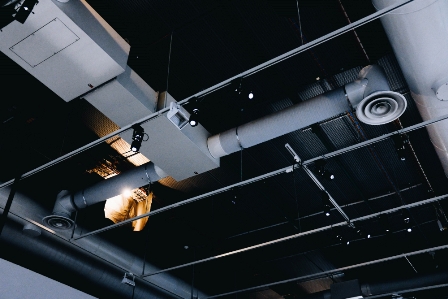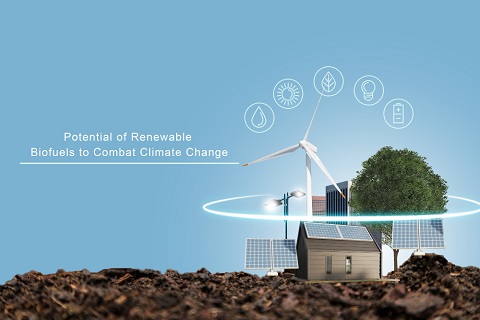In our quest for a comfortable home, the efficiency of our air conditioning (AC) system plays a pivotal role. Achieving the perfect balance of coolness in the scorching heat or warmth during chilly nights contributes significantly to our overall well-being. In this comprehensive guide, we will delve into the intricacies of mastering home comfort through efficient AC usage.
Understanding Your AC System
Before we embark on optimizing our AC usage, it’s essential to understand the basics. AC systems come in various types, from central air to ductless mini-splits. Knowing the components of your AC unit, such as the compressor, evaporator, and condenser, provides a foundation for efficient operation.
Choosing the Right AC Unit for Your Home
Selecting the perfect air conditioning (AC) unit for your home is a crucial decision that significantly impacts your comfort and energy efficiency. With various options available in the market, understanding the key factors to consider ensures that you make an informed and optimal choice.
Assess Your Home’s Size and Layout
- Determine the square footage of the area to be cooled.
- Consider the layout, ceiling height, and insulation of your home.
Types of AC Units
Central Air Conditioning:
- Suitable for larger homes.
- Provides even cooling throughout the entire house.
Ductless Mini-Splits:
- Ideal for homes without ductwork.
- Offers flexibility with individual room control.
Window and Portable Units:
- Cost-effective solutions for smaller spaces.
- Easy to install but may be less efficient for larger areas.
Energy Efficiency Ratings
- Look for the Seasonal Energy Efficiency Ratio (SEER) rating.
- Higher SEER ratings indicate greater energy efficiency.
Consider Climate and Temperature Fluctuations
- Hot and humid climates may require higher capacity units.
- Variable-speed compressors provide better temperature control.
Budget Constraints
- Determine your budget for both the initial purchase and long-term operation.
- Consider the return on investment in terms of energy savings.
Installation Tips for Maximum Efficiency
When it comes to optimizing your home’s air conditioning (AC) system, the installation process is a critical factor that sets the stage for efficiency and longevity. Whether you’re installing a new AC unit or upgrading your existing system, following these installation tips will ensure you get the most out of your investment.
Professional Installation Matters
- Opt for professional installation to guarantee proper setup.
- Trained technicians understand the nuances of different AC systems and can ensure all components are installed correctly.
Correct Positioning Is Key
- Place the outdoor unit in a shaded area to prevent overheating.
- Ensure proper clearance around the unit for adequate airflow.
Size Matters
- Install an AC unit that is the right size for your home.
- An oversized unit may short cycle, leading to energy waste, while an undersized unit struggles to cool your space efficiently.
Insulate Ductwork
- Properly insulate ducts to prevent energy loss.
- Insulated ducts ensure that cooled air reaches its destination without being affected by external temperatures.
Seal Leaks in Ducts
- Check for and seal any leaks in the ductwork.
- Leaks can lead to loss of cooled air, reducing the overall efficiency of your AC system.
Optimal Temperature Settings
Finding the sweet spot for your thermostat settings is key to energy efficiency. Adjusting temperatures based on the season and considering factors like humidity can significantly impact both comfort and energy consumption.
Utilizing Programmable Thermostats
Programmable thermostats offer a technological edge in optimizing AC usage. Take advantage of preset schedules, adjust settings remotely, and make the most of energy-saving features to enhance efficiency and reduce costs.
Regular Maintenance for Longevity
Regular maintenance is the backbone of efficient AC operation. Simple tasks like cleaning or replacing filters, checking for leaks, and inspecting ductwork contribute to the overall health of your system. Professional services should be sought for more intricate tasks.
Troubleshooting Common AC Issues
Understanding common AC problems empowers homeowners to address issues promptly. From strange noises to uneven cooling, identifying problems early can prevent further damage. However, complex issues may require the expertise of a professional technician.
Improving Indoor Air Quality
Beyond temperature control, AC systems play a vital role in maintaining indoor air quality. Regularly changing filters, investing in air purifiers, and ensuring proper ventilation contribute to a healthier living environment.
Energy-Efficient Upgrades
Upgrading your AC system with energy-efficient components not only reduces environmental impact but also saves on energy costs. Explore options such as high-efficiency air filters, smart thermostats, and variable-speed compressors for enhanced performance.
Smart Home Integration
The integration of AC systems with smart home technology adds a layer of convenience and efficiency. From voice commands to remote access, smart home features provide unparalleled control over your home’s climate.
Cost-Effective Cooling Tips
For those on a budget, several cost-effective cooling strategies can be employed. From using fans strategically to sealing air leaks, these tips ensure a comfortable home without breaking the bank.
Environmental Impact of AC Usage
It’s essential to consider the environmental impact of AC usage. Understanding the carbon footprint of different systems and adopting eco-friendly practices, such as proper disposal of old units, contributes to a more sustainable future.
Balancing Comfort and Energy Savings
Striking the right balance between comfort and energy savings requires thoughtful decision-making. Whether adjusting thermostat settings, investing in upgrades, or exploring alternative cooling methods, finding this equilibrium ensures a harmonious living space.
Frequently Asked Questions (FAQs)
The optimal temperature setting for your AC during the summer is around 78°F (25.5°C) when you’re at home. Adjust it slightly higher when you’re away to balance comfort and energy savings effectively.
It’s recommended to change your AC’s air filters every 1 to 3 months. Regular filter changes ensure proper airflow and maintain your system’s efficiency.
To enhance your AC system’s performance, schedule regular professional tune-ups, clean the condenser coils, and keep the surrounding area clear of debris. Regular maintenance can significantly improve efficiency.
Ceiling fans can complement your AC system by circulating cool air and making you feel more comfortable at higher temperatures. However, they don’t replace the cooling function of an AC unit.
Energy-efficient upgrades include investing in a higher SEER AC unit, upgrading to energy-efficient windows, and improving insulation. These upgrades can lead to reduced energy consumption and lower utility bills.
Smart thermostats allow you to program temperature settings based on your schedule. They can also be controlled remotely, so you can adjust settings even when you’re not at home. This prevents unnecessary cooling and reduces energy waste.
Conclusion
Mastering home comfort through efficient AC usage involves a combination of understanding your system, making informed choices, and embracing technological advancements. By implementing the tips outlined in this guide, you can create a home environment that is both comfortable and environmentally responsible.




